Human resources gap must close
The socioeconomic development strategy from 2021-2030 focuses on training high-quality human resources, as well as outstanding policies to attract talent and experts both at home and abroad. It aims to build a team of leaders, managers, and civil servants with good qualities, professionalism, and dedication.
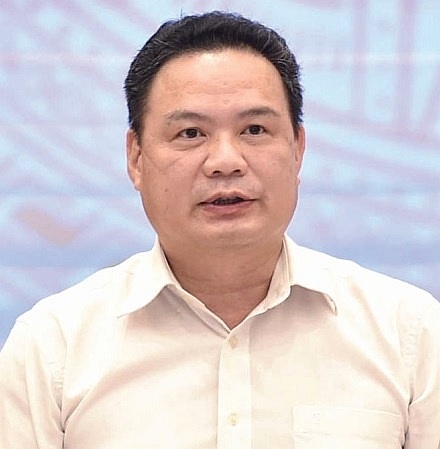 |
| Le Van Thanh, deputy minister of Labour, Invalids, and Social Affairs |
Implementing the Party and government’s policies, ministries and sectors have issued many policies to engage talent, including policies to entice excellent graduates and faculty staff. In the last three years, a series of development strategies, focusing on developing high-quality, have also been urgently developed and implemented to aid development.
Vietnam’s programmes, projects, development strategies, and quality have now made certain progress. Total factor productivity in 2022 contributed 43.8 per cent to GDP growth. Vietnam has reached regional and international levels in several industries and fields such as IT and health.
Some corporations and businesses have proactively gone ahead and anticipated scientific and technological achievements. These units have mobilised and utilised highly qualified human resources to promote the process of modernising production, creating products that compete with corporations and businesses.
However, overall, although the scale of Vietnam’s human resources is large, the quality is still limited. Vietnam is in a period of a golden population structure, with a labour force of 52.4 million people. However, it only has 28 per cent of the workforce with degrees and certificates, of which less than 15 per cent have college, university, or higher degrees and 13 per cent have intermediate or elementary degrees, and more than 65 per cent of workers are in the informal sector.
The country still has a huge gap in high-quality labour in many industries and fields. For example, human resources in logistics currently only meet 40 per cent of demand. Most logistics businesses have difficulty recruiting management, operations, and coordinating personnel, and must hire personnel from abroad.
The new digital industry can meet about 40-50 per cent of the annual need for high-quality labour. In the semiconductor industry alone, the whole country currently needs 10,000 engineers per year, but training meets less than 20 per cent of that. Meanwhile, the training capacity of schools to provide high-quality human resources in sectors in the economy every year is still extremely limited, not meeting the needs of the market.
The proportion of untrained workers is large, the quality of training low, the industry structure not reasonable, and there is a lack of qualified, capable, and highly skilled workers, including leaders and managers.
This situation is a major obstacle to improving the competitiveness of the economy through shifting from processing and assembly to design and creation, indirectly hindering Vietnam’s industrialisation, modernisation, and international integration.
With the goal of making Vietnam a developed country with high income by 2045, building and promoting human resources will be a decisive factor. With that, the Ministry of Labour, Invalids, and Social Affairs (MoLISA) will focus on three key areas.
Firstly, Vietnam currently does not have the conditions and ability to train and provide high-quality human resources for all industries and fields, so it is necessary to focus on those sectors planned to be key ones - especially the semiconductor chip manufacturing sector, as this sector’s global production chain is tending to shift investment to emerging economies, including Vietnam.
Next, we must create a favourable working environment for high-quality workers to contribute and develop. To achieve this, Vietnam must have a remuneration regime as well as a healthy, transparent working environment and a mechanism to honour and recognise high-quality labour.
In addition, we must also continuously train and promptly appoint high-quality workers, both in the state apparatus and in businesses.
At the same time, the state also needs to have appropriate policies and mechanisms for testing, evaluating, screening, selecting, and eliminating workers. These are the basic but most crucial factors to engaging today’s high-quality workforce.
It is also vital to continue to improve policies to attract high-quality human resources, including Vietnamese international students as well as overseas Vietnamese living abroad, to develop the country.
Currently, Vietnam has about 80,000 international students studying in nearly 40 countries and territories around the world. In addition, there are about 600,000 overseas Vietnamese intellectuals with post-university degrees, living mainly in developed countries. This is a great resource for the country’s development, especially in innovation and technology transfer.
For high-quality foreign workers, the MoLISA also strives to offer solutions and simplify work permit procedures to engage them to work in Vietnam.
Decree No.70/2023/ND-CP stipulates the authority and responsibility of the MoLISA, and the department of labour, invalids, and social affairs of localities in implementing employing foreign workers approval; confirmation of not being subject to a work permit; and issuance, re-issuance, extension, and revocation of work permits.
The above regulations also ensure proper implementation of a 2021 directive on attracting, managing, and effectively using foreign workers in Vietnam.
Previously, Decree No.152/2020/ND-CP dated December 2020 did not specifically regulate the types of documents proving managers and executive directors, but Decree No.70/2023/ND-CP from September 2023 amending and supplementing a number of articles of Decree 152 specifically stipulated that documents proving that they are managers or CEOs include only three types of documents. These include charter of the company or operating regulations of agencies, organisations, or enterprises; business registration certificate or establishment certificate or other documents of equivalent legal value; and resolution or appointment decision of an agency, organisation, or enterprise.
Thus, the aforementioned documents ensure convenience and reduce administrative procedures for businesses when carrying out work permit procedures because they do not have to prove professional qualifications or work experience.
| Pham Vu Quoc Binh, deputy director Directorate of Vocational Education and Training
Vocational education is creating positive marks in the labour and employment market thanks to the process of international cooperation and changes in the scale, quality and effectiveness of training programmes. Last year was considered an extremely successful and productive one for vocational education, with all annual plans implemented. Enrolment reached about 2.3 million people, including 530,000 at college and intermediate level, and more than 1.76 million people at elementary level and other vocational training programmes. The Directorate of Vocational Education and Training (DVET) has advised the Ministry of Labour, Invalids, and Social Affairs to guide ministries, sectors, and localities to continue to arrange and reorganise public vocational education establishments according to planning. In international cooperation on vocational education, the DVET has continuously promoted and actively supported the entire vocational education system to innovate and develop in both breadth and depth, attracting many new potential partners interested in vocational education such as organisations under the United Nations and the European Union. The DVET aims to expand and improve the effectiveness of comprehensive cooperation between Vietnam and other countries and international organisations in vocational education. It will also promote negotiations, signing, and implementation of cooperation agreements and programmes with international partners and foreign investment enterprises operating in Vietnam in supporting vocational education institutions, pupils and students to strengthen their professional skills. In addition, we also actively participate in regional and international competitions, organisations, forums, and associations on vocational education and host international vocational skills competitions. Especially in the context that Vietnam is an attractive destination attracting many foreign businesses, opportunities for internationalisation in vocational education are very promising. |
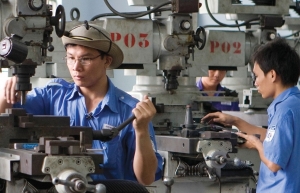 | Support necessary to boost green human resources A vibrant and dynamic vocational education and training system is crucial to Vietnam meeting its socioeconomic development goals. Jen Bahen, education and research counsellor at the Australian Embassy in Vietnam, told VIR’s Hoang Oanh about Australia’s support in vocational training and human resource building. |
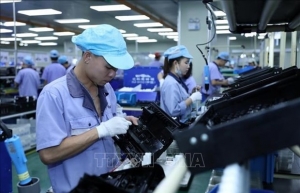 | Hai Phong ensures high-quality human resources for businesses The Hai Phong Economic Zone Authority (HEZA) has taken various solutions to improve the quality of human resources for businesses at industrial and economic parks in the northern port city. |
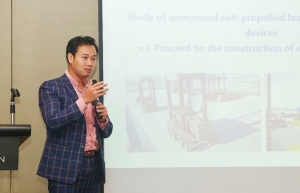 | Modernised seaports in Vietnam require enhanced human resources The operation of seaports has been improved thanks to modernisation and the digital transformation. However, the training of human resources has yet to catch up with development. |
What the stars mean:
★ Poor ★ ★ Promising ★★★ Good ★★★★ Very good ★★★★★ Exceptional
Related Contents
Latest News
More News
- A golden time to shine within ASEAN (February 19, 2026 | 20:22)
- Vietnam’s pivotal year for advancing sustainability (February 19, 2026 | 08:44)
- Strengthening the core role of industry and trade (February 19, 2026 | 08:35)
- Future orientations for healthcare improvements (February 19, 2026 | 08:29)
- Infrastructure orientations suitable for a new chapter (February 19, 2026 | 08:15)
- Innovation breakthroughs that can elevate the nation (February 19, 2026 | 08:08)
- ABB Robotics hosts SOMA Value Provider Conference in Vietnam (February 19, 2026 | 08:00)
- Entire financial sector steps firmly into a new spring (February 17, 2026 | 13:40)
- Digital security fundamental for better and faster decision-making (February 13, 2026 | 10:50)
- Aircraft makers urge out-the-box thinking (February 13, 2026 | 10:39)

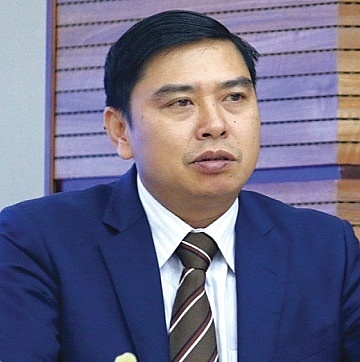
 Tag:
Tag:













 Mobile Version
Mobile Version